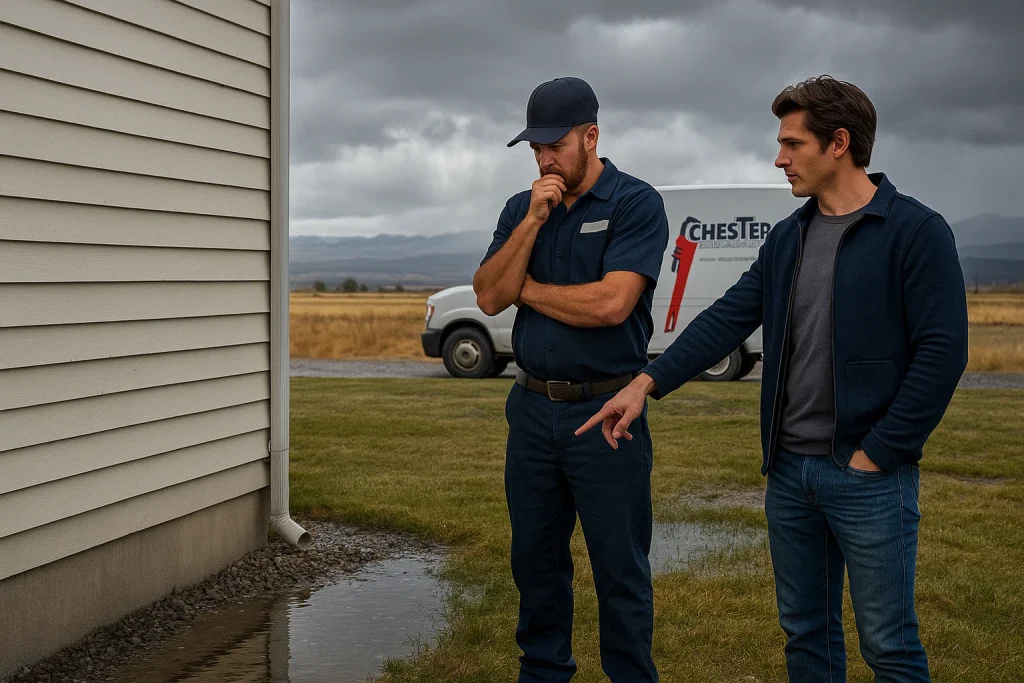Nevada may be known for its dry desert climate, but when summer monsoon season hits, it brings a different kind of challenge: sudden, heavy rainfall that can overwhelm drainage systems and cause flash floods. These intense downpours can arrive with little warning—and when they do, they can wreak havoc on your home’s plumbing and drainage systems.
From sewer backflows and clogged storm drains to sediment buildup and foundation damage, understanding the risks of flash floods and how to prepare can help you protect your property before the next storm rolls in.

How Monsoon Season Impacts Your Home’s Drainage
Nevada’s monsoon season typically runs from July through September, and while the rain can offer temporary relief from the heat, it can also stress residential and municipal drainage systems. Here’s how:
- Flash floods can occur when dry soil and paved surfaces can’t absorb water fast enough, leading to rapid water accumulation around your home.
- Storm drains and sewer lines may overflow or back up due to debris, sediment, and the sheer volume of water.
- Yard drains and foundation systems can become overwhelmed, directing water into basements or crawlspaces instead of away from the home.
- Sediment and silt stirred up by rushing water can clog or block plumbing fixtures and drains.
These issues aren’t just inconvenient—they can lead to water damage, mold, and even health risks if wastewater enters your home.
Signs Your Home May Be at Risk
Even if you haven’t experienced a major flood in the past, your home may still be vulnerable during a strong monsoon event. Be on the lookout for these warning signs:
- Standing water around your foundation or in your yard after a storm
- Slow drains or gurgling sounds in sinks and toilets
- Water stains or dampness in your basement or crawlspace
- Strong sewer odors coming from drains after heavy rain
If you’ve noticed any of these red flags, it’s time to take proactive steps to prevent costly damage.
Plumbing Precautions to Take Before the Storm
Don’t wait for the rain to start. There are some smart ways to prepare your home’s plumbing and drainage systems ahead of monsoon season. Schedule a drain and sewer inspection. A licensed plumber can use video inspection tools to check for blockages, cracks, root intrusion, or signs of sediment buildup in your main sewer line. Early detection allows time for cleaning or repairs before problems escalate.
Install a backwater valve. This device is designed to prevent sewage from flowing backward into your home during times of high pressure. It’s a valuable safeguard for homes in low-lying areas or with older plumbing systems. Clean out yard drains and gutters. Remove leaves, dirt, and debris that could block stormwater from draining away from your home. If you have French drains, make sure they’re functioning properly.
Protect basement plumbing. If your home has a basement, consider installing a sump pump with a battery backup. This can help keep water from pooling during flash floods—even if the power goes out. Seal low entry points. Use waterproof sealants around windows, doors, and any known leaks in your foundation. Check vent pipes and exterior plumbing penetrations for gaps.
Trusted plumbing & HVAC solutions from Charles Chester – Keeping your home running right. Give us a call to schedule your services today!
